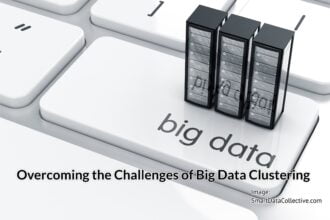 What does your mobile phone usage say about you? Probably a lot more than you think.
What does your mobile phone usage say about you? Probably a lot more than you think.
Mobile phone operators are using advanced analytics to “mine” call detail records hoping to use the information to improve service quality and create more personalized and relevant offers. But that’s old hat compared to what’s coming next.
Land line and mobile operators—by nature—capture a significant amount of transactional data (call detail records, web visits/transactions, and GPS data just to name a few). To extract value from this data, companies employ data mining techniques.
Data mining is the process of discovering hidden patterns from large data sets. Using sophisticated algorithms, companies in all industries are “mining” mammoth data warehouses to identify useful information (relationships, rules, and sequences) that can help them customize and personalize offers, and optimize business processes.
However, according to a Technology Review article titled “Reality Mining,” MIT professor Sandy Pentland thinks mobile operators are poised to take data mining to a whole new level.
Dubbed, “reality mining,” Dr. Pentland thinks mobile operators have an opportunity to record more than just …
 What does your mobile phone usage say about you? Probably a lot more than you think.
What does your mobile phone usage say about you? Probably a lot more than you think.
Mobile phone operators are using advanced analytics to “mine” call detail records hoping to use the information to improve service quality and create more personalized and relevant offers. But that’s old hat compared to what’s coming next.
Land line and mobile operators—by nature—capture a significant amount of transactional data (call detail records, web visits/transactions, and GPS data just to name a few). To extract value from this data, companies employ data mining techniques.
Data mining is the process of discovering hidden patterns from large data sets. Using sophisticated algorithms, companies in all industries are “mining” mammoth data warehouses to identify useful information (relationships, rules, and sequences) that can help them customize and personalize offers, and optimize business processes.
However, according to a Technology Review article titled “Reality Mining,” MIT professor Sandy Pentland thinks mobile operators are poised to take data mining to a whole new level.
Dubbed, “reality mining,” Dr. Pentland thinks mobile operators have an opportunity to record more than just where you’ve been or who you have recently called.
The article notes that Pentland “would like to see phones collect even more information about their users, recording everything from their physical activity to their conversational cadences.”
In the near future, Dr. Pentland suggests the following can be “learned” from studying data captured from your cell phone:
- Your cadence may reflect your state of mind that day – are you happy, sad, depressed?
- Through capture of location based data, it will be possible to “predict” places you are more likely to visit
- Your calling patterns can help map your social network
- Your physical activity (or lack thereof) could be monitored by health professionals via your mobile device. Pedometer anyone?
The article continues, “Within the next few years, Pentland predicts, reality mining will become more common, thanks in part to the proliferation and increasing sophistication of cell phones. Many handheld devices now have the processing power of low-end desktop computers, and they can also collect more varied data, thanks to devices such as GPS chips that track location. And researchers such as Pentland are getting better at making sense of all that information.”
Of course, there are strong privacy considerations with the advent of these services. How does one opt in/or opt out? What information is shared and how much is shared and with whom?
Arguably, on the marketing side, more detailed information (including location-based data), collected and analyzed by your wireless carrier could help them tailor and personalize specific offers—raising marketing effectiveness. And mapping your social network could help you share information more easily (think: favorite five plans—on steroids).
But there is a fine line between “benefit” and “big brother.”
- What do you think of the concept of “reality mining”?
- Would you be willing to opt-in to potential benefits of reality mining?
- Where would you “draw the line”?







